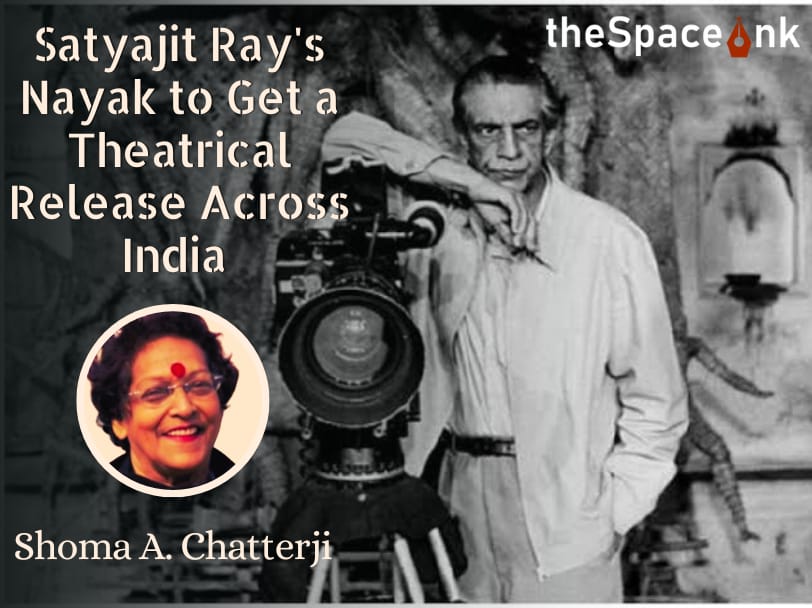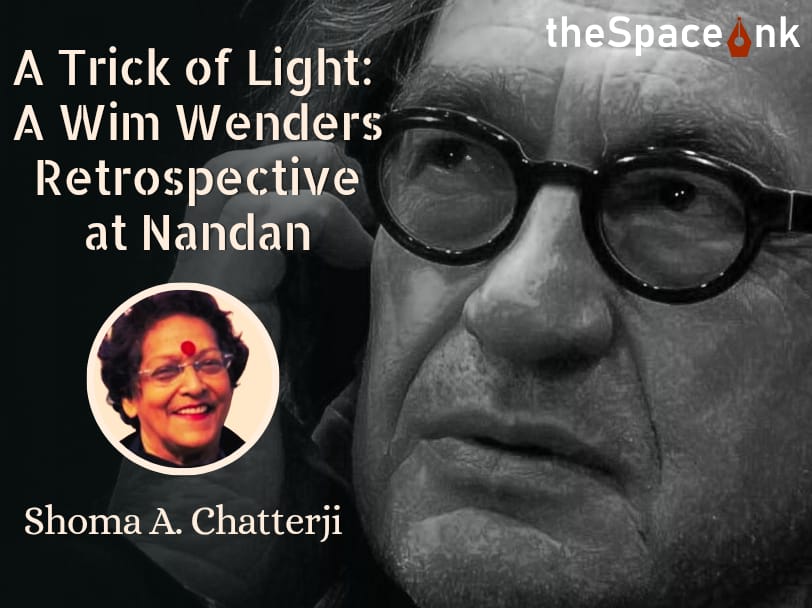In 1972, two songs from Gulzar’s film ‘Parichay’– ‘Meetwa bole meethe bain’ and ‘Beeti na bitayi raina’ pulled Bhupinder Singh out of relative obscurity and catapulted him on Bollywood centrestage. That is how the song-crazy Indian public made his acquaintance. The baritone, with strains coupled with a tinge of sadness, would rule that space for the next decade. However, in the mid-80s, Bhupinder, along with wife Mitalee, chose the niche world of ghazals and nazms. His film playback songs were few and far between. As his friend of 50 years, Gulzar, would say, ‘Bhupi is a bit of a fakir, like Sufis and Sadhus. He might look lazy but is always focused and attentive.’
Let’s get down to the brass tacks first. Bhupinder Singh was born on 6th February, 1940 in Amritsar. His father Natha Singh was professor of music at a local college. Bhupinder’s initiation to music was early, thanks to his father. Their library was a treasure trove of musical instruments. Here began his fascination with the guitar.
After college Bhupinder joined All India Radio, Delhi as a casual artiste and became a protégé of noted music composer Satish Bhatia. The latter introduced him to legendary music director Madan Mohan. It was courtesy Madan Mohan that Bhupinder made his Bollywood debut as an actor-singer in Chetan Anand’s war classic ‘Haqeeqat’ (1964). Along with Bhupinder, the song ‘Hoke majboor mujhe’ was sung by Mohammad Rafi, Talat Mahmood and Manna Dey.
Bhupinder then took a break from Bollywood, returned to Delhi and started looking for other career options. Thankfully, his friends thought otherwise. They convinced him that if he can’t make it big as a singer, he can always excel as an accompanist, given his mastery over the Hawaian guitar.
Bhupinder returned as actor-singer in Chetan Anand’s next venture, ‘Aakhri Khat,’ in 1966. The club song ‘Rut Jawan Jawan’ written by Kaifi Azmi and composed by Khayyam drew a fair response. Soon after, Bhupinder would sing the opening notes and the refrain ‘O Shalu’ in Sachin Dev Burman’s classic ‘Hothon mein aisi baat’ from ‘Jewel Thief’ (1967).
In 1968, Bhupinder joined Rahul Dev Burman’s famous band of musicians comprising Bhanu Gupta on guitar & harmonica, Maruti Rao on tabla, Franco Vaz on drums, Basu Chakraborty on cello, Manohari Singh on soprano-saxophone and Kersi Lord on organ. The film was ‘Abhilasha.’ Impressed with Bhupinder’s skills, Bhanu Gupta inspired him to play the Spanish guitar. Very soon, Bhupinder picked up the electric guitar too.
As a singer, 1975 to 1977 were his glorious years. His solos ‘Dil dhoondta hai’ from ‘Mausam’, (1975) and ‘Ek akela is sheher mein’ from ‘Gharaonda’ (1977) captured the urban angst of the 70s. Their impact is felt even to this day. When Bhupinder passed away on 18th July, 2022, these two were the most heard songs across TV channels and social media. The common thread between the songs was Gulzar who penned the lyrics for both. ‘Mausam’ was Madan Mohan’s swansong while the ‘Gharaonda’ numbers were composed by Jaidev. Bollywood chroniclers Anirudha Bhattacharjee & Balaji Vittal called ‘Dil Dhoondta’ ‘a perfect anthem to life’s lost moments’.
Bhupinder, Gulzar and R D Burman formed a holy trinity of sorts and had their crowning moment in 1977 in ‘Kinara’, where Gulzar was director-lyricist, R D Burman, the composer and Bhupinder, the main male singer. The songs, ‘Naam goom jayega’, ‘Meethe bole bole’, ‘Koi nahin hai kahin’ were runaway hits. However, the standout number was the Bhupinder solo, ‘Ek hi Khwab.’ This marked Gulzar and Bhupinder taking joint steps towards creating the nazm (poetry in blank verse) magic. This was also the only instance when the guitar accompaniment for a film song was played by the singer himself. In many ways, Bhupinder filled the void left by the untimely death of legendary singer Mukesh. In an interview, Bhupinder said, ‘As a singer, Madan Mohan created me while Pancham (R D Burman) nurtured me.’
Till the mid-80s, Bhupinder gave a hit almost every year, either in solo or duet. These included ‘Zindagi mere ghar aana’ (Dooriyan, 1979), ‘Thodisi zameen’ (Sitara, 1980), Aj bichhde (Thodisi Bewafai, 1980), Kabhi kisi ko muqammal (Ahista Ahista, 1981), ‘Pyar humein kis more’ (Satte Pe Satta, 1982), ‘Karoge Yaad Toh’ (Bazaar, 1982), ‘Huzur Is Qadr’ Bhi (Masoom, 1983) and ‘Kisi nazar ko tera’ (Aitbaar, 1985). Some of these songs were written by Gulzar and the composers included Jaidev, Khayyam, R D Burman and Bappi Lahiri. Around the same time, Bhupinder sang his most popular Bengali number ‘Kobe je kothay’ in the film ‘Troyee’ in 1982. Composed by R D Burman, the song has been the stuff of remakes ever since.
As a singer, 1975 to 1977 were his glorious years. His solos ‘Dil dhoondta hai’ from ‘Mausam’, (1975) and ‘Ek akela is sheher mein’ from ‘Gharaonda’ (1977) captured the urban angst of the 70s. Their impact is felt even to this day. When Bhupinder passed away on 18th July, 2022, these two were the most heard songs across TV channels and social media.
Had he not become a singer, Bhupinder would still have remained immortal as a guitarist. His body of work as guitarist is mind-boggling. Some of the most popular guitar preludes and interludes in Bollywood songs were played by him. The refrain in ‘Dum maro dum’ (Hare Rama Hare Krishna, 1972), the opening bars in ‘Chura liya’ (Yaadon ki Baraat, 1973), ‘Tera mujhse hai’ (‘Aa Gale Lag Ja’, 1973) and ‘Ruke ruke se kadam’ (‘Mausam’, 1975), the strumming in ‘Chingari koi bhadke’ (Amar Prem’, 1972), ‘Chand mera dil’ (‘Hum Kisise Kum Nahin’, 1977), ‘Tere bina jiya jaye na’ (‘Ghar’, 1978) and ‘Yeh ladki zara si’ (‘Love Story’, 1981), all bore the indelible stamp of Bhupinder’s 12-string guitar. It is not without reason, R D Burman bandman and noted musician Kersi Lord said, Bhupinder’s guitar resembles a ‘human voice’.
In the early 80s, Bhupinder met Bangladeshi singer Mitalee Mukherjee, who had come to study music at The Maharaja Sayajirao University of Baroda. Bhupinder struck the right chord when he heard her sing on a Mumbai Doordarshan programme. They got married in 1983.

This was also the time when Bollywood was in the throes of disco-mania and the stars of R D Burman were on the wane. Bhupinder, in one of his interviews, said, as lyrics got devalued, studios became smaller and musicians played their own part and left. The charm of playback song recording was gone. In such a scenario he decided to focus on live shows and composing ghazals.
Apart from Pankaj Udhas, Talat Aziz, the space was then ruled by the husband-wife duo of Jagjit & Chitra Singh, Rajendra & Neena Mehta. Bhupinder & Mitalee Singh went on to enrich the genre in India. Even earlier, in 1980, Bhupinder and Gulzar continued their blank verse experiments in the ghazal album ‘Woh Jo Shayar Tha.’ Subsequently, the couple and Gulzar collaborated in the albums ‘Aksar’, ‘Surmayi Raat’ and ‘Dil Peer Hai.’ Bhupinder and Mitalee’s duets ‘Shama jalaye rakhna’ and ‘Rahon pe nazar rakhna’ have been top faves among ghazal aficionados. Bhupinder’s name wafted across Bangladesh shores also. His fast-paced number with Mitalee, ‘Je tuku shomoy tumi’, composed by Alauddin Ali is among all time hits in the neighbouring country.
The master of soulful singing is no more. There is no one to call the evergreen Gulzar Saab and say, ‘Ek dhoon aa rahi hai. Apko kuchh lafz dena hai’ (A tune is taking shape. You have to pen the lyrics.).
Acknowledgements:
- ‘R D Burman: The Man, The Music’ by Anirudha Bhattacharjee & Balaji Vittal.
- ‘Gaata Rahe Mera Dil’ by Anirudha Bhattacharjee & Balaji Vittal.
- Old interviews on YouTube.
Images courtesy: Wikipedia
Abhijit Sen spent nearly two decades as a senior journalist for a renowned English daily. He now divides his time between writing columns, listening to music and watching movies of his choice. He also likes to sing songs composed by Rabindranath Tagore.








